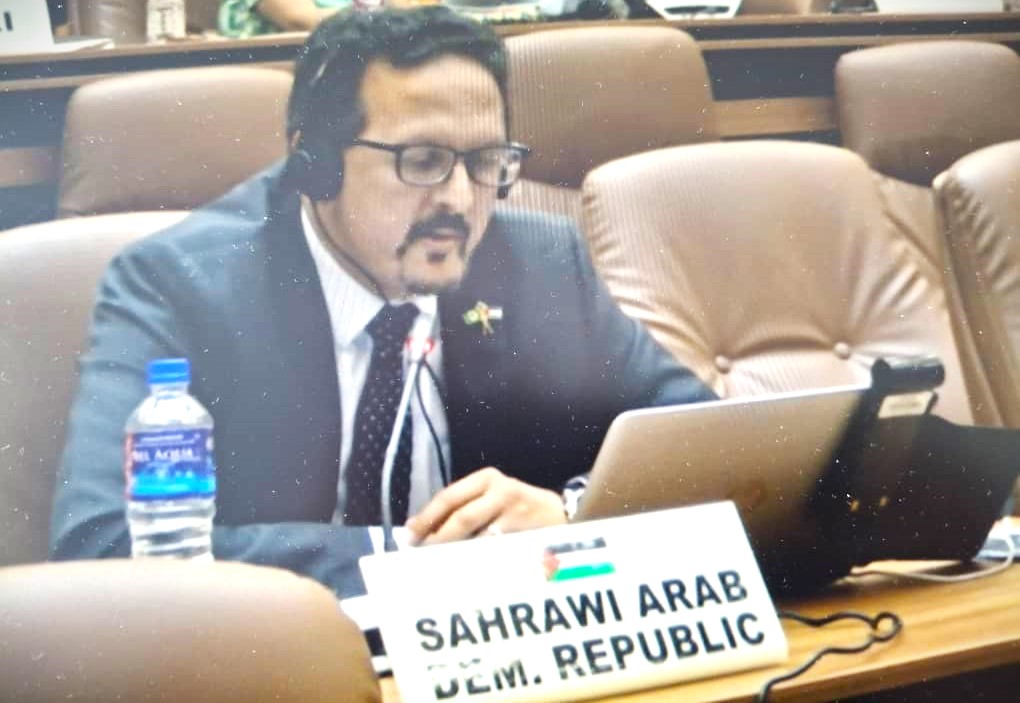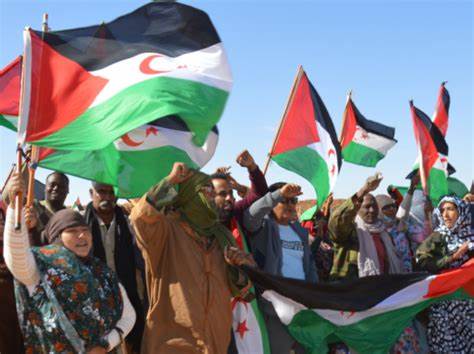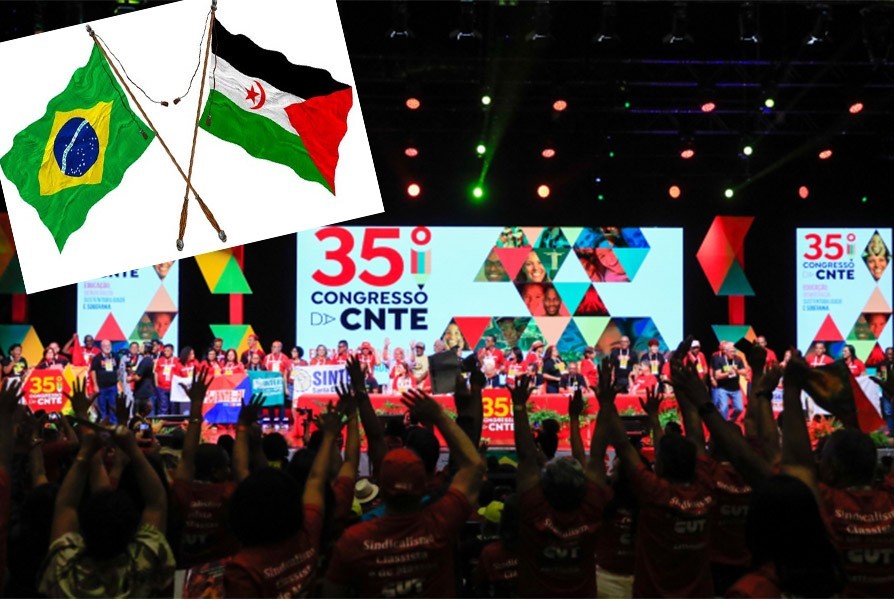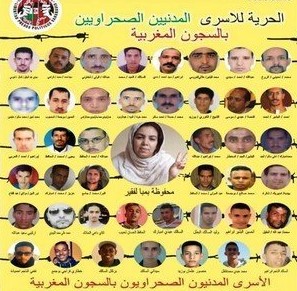
Banjul (The Gambia) 2 May 2025 (SPS) – The Sahrawi Republic delivered a general statement during the opening session of the 83rd Ordinary Session of the African Commission on Human and Peoples’ Rights (ACHPR), which officially began this Friday morning in Banjul, The Gambia.
The statement outlined the human rights situation in the occupied territories of Western Sahara, highlighting the ongoing colonial occupation, forced displacement, and systematic violations faced by the Sahrawi people under Moroccan illegal occupation and oppression.
Ambassador Malainin Lakhal, Deputy Permanent Representative of the Sahrawi Republic to Ethiopia and the African Union, delivered the statement on behalf of the Sahrawi Republic. In his remarks, he urged the African Commission and all relevant AU institutions to break their silence and translate their mandates into concrete actions. "Delaying justice is not only a denial of it," he said, "but may also be perceived as complicity — or at the very least, a failure to uphold moral and institutional responsibility."
Following is the full text of the statement:
Opening speech, by Amb. Malainin Mohamed, Deputy Permanent Representative of the Sahrawi Arab Democratic Republic to the AU representing the Sahrawi Republic during the Opening Session of the 83rd Session of the African Commission on Human and Peoples’ Rights.
02nd May 2025, in Banjul, The Gambia
Y.E Chairperson of the ACHPR, Excellencies Commissioners, Ambassadors, distinguished MS delegates, Representatives of National Human Rights mechanisms, NGOs, all protocols observed.
Allow me first to express the Sahrawi Republic’s sincere thanks to the Republic of the Gambia for its continued generosity in hosting and supporting the work of the ACHPR. Let me also stress the crucial role this august Commission and all other related African institutions are playing in promoting, monitoring and protecting human rights across Africa.
The African Union’s 2025 theme on reparations highlights the need for justice, healing, and accountability for historical and ongoing colonial injustices. It is within this general spirit that I am addressing you on behalf of the Sahrawi Republic, to inform you with deep concern about one of the most severe, persistent, and yet overlooked human rights and humanitarian crises on our continent — I am talking about the situation in the occupied zones of the Sahrawi Republic/Western Sahara, Africa’s last colony, under Morocco’s ongoing illegal occupation. The Sahrawi people are being denied their basic rights to self-determination, freedom, and dignity — with complete impunity. And I would like here to totally agree with H.E. the Chairperson of the ACHPR, Hon. Remy Ngoy Lumbu, when he said in his opening statement today that Africa is sick and suffering because of the non-respect of the African human and peoples’ rights. I cannot agree more on this diagnostic Mr. Chairperson.
For decades, the Sahrawi people have suffered under foreign military occupation, in clear violation of African and international law — including the African Charter (Article 20), the UN Charter, and the AU Constitutive Act. This occupation is not only a denial of sovereignty to a founding AU member, but also the source of widespread, systemic abuses that the ACHPR and all relevant African and UN bodies can no longer ignore, given the grave implications for regional and continental stability.
At the heart of this crisis is of course the illegal exploitation of Sahrawi natural resources (Article 21). For years, multinationals and complicit states have looted Western Sahara’s fisheries, phosphates, and more — in open defiance of international law, including the 2024 ruling of the European Court of Justice. This is not mere illegality — it is shameless economic aggression and the theft of African wealth.
Meanwhile, Sahrawis endure systematic repression: enforced disappearances, torture (even of children and people with special needs), extrajudicial executions, sexual violence, arbitrary arrests, and sham military trials against civilians. These are not isolated incidents — they are daily and systematic realities.
Sahrawi civilians are forcibly displaced, their homes destroyed, wells and sources of water devastated, and livestock endangered. This scorched-earth policy is a deliberate effort to displace the Sahrawi population and replace them with Moroccan settlers. Cultural genocide, economic marginalization, and restrictions on education, freedom of speech, and protest aim to suppress Sahrawi identity entirely.
Sahrawi political prisoners remain in deplorable conditions, far from home. The Gdeim Izik group, human rights defenders convicted in trials widely condemned by international observers, symbolize the impunity Morocco enjoys — shielded of course by powerful ex-colonial allies willing to disregard international law, and believing that might can or should make rights.
Even more alarming is the media blackout. Journalists, UN bodies, and AU observers are barred from the occupied territory, while activists are punished for speaking out. Western Sahara has become Africa’s largest open-air prison, sealed from scrutiny and ruled by fear. The African Commission itself has been blocked from visiting the territory since 2013 — twelve years of silence while violations worsened.
Since Morocco violated the ceasefire on November 13, 2020, armed conflict resumed between the Moroccan army of invasion and the Sahrawi army of liberation; violence against Sahrawi civilians has escalated. Moroccan drones target civilians, using prohibited weapons. These indiscriminate attacks constitute war crimes and must be urgently condemned.
Mr. President,
This is more than a human rights crisis — it is a test of the credibility of our institutions. The African Charter cannot be selectively applied. The Sahrawi Republic is a full AU member. Its people are fully African — yet they feel forgotten, expected to endure horrific abuses in silence, and this is simply unfair.
We call on this esteemed ACHPR to fully uphold its responsibilities by:
Urgently resuming its long-delayed mission to the occupied territories; Investigating and documenting the full scale of violations; Demanding accountability from the occupying power; And expressing clear solidarity with the Sahrawi people, in line with the principles and goals of Pan-Africanism that guided our Founding Fathers.
Excellencies, brothers and sisters,
Africa cannot afford to look away. This is not some distant war. It is unfolding here — on our soil, under our watch. We are the custodians of this continent’s legacy. History will judge us not by our words, not by our intentions, not even by our fears and prudence, but by our actions. No justification, no geopolitical excuse, no diplomatic evasion can absolve inaction. This is not merely a conflict — it is a modern colonization, a continuous crime against humanity, and a grave assault on African dignity taking place in front of your eyes.
Let us remember that our nations stand free today because past generations chose to resist injustice giving their lives and dreams as a sacrifice. Would they had remained silent out of fear or indifference back then, none of us would be here. Now, it is our turn to choose where to stand.
We urge the ACHPR, and all African Union relevant institutions, to break the silence and translate their mandates into deeds and actions. Because, justice delayed is not just justice denied — it can also be perceived as complicity, or at the least, a failure to uphold moral and institutional responsibility.
Thank you.



